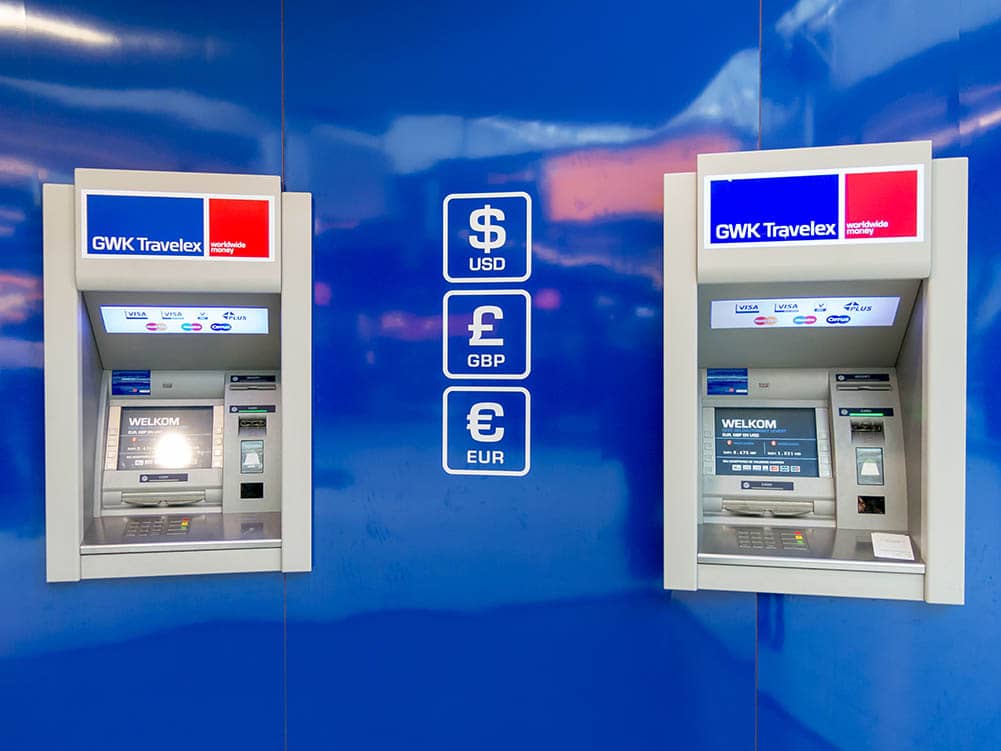GBP/EUR Forecast: Scope for Further "Notable" Losses says Analyst
- Written by: Gary Howes
-
- GBP/EUR can fall further says MUFG
- As ECB turns 'hawkish'
- And markets set for volatility
- But, other analysts disagree

Image © Adobe Images
Pound Sterling will lose "notable" value against the Euro says a new analysis from global investment bank MUFG, although other analysts say the UK currency can advance in value during 2023.
The call by MUFG's currency strategists comes in the wake of December's round of central bank policy decisions that included a notably more 'hawkish' European Central Bank policy update that increased market volatility in its wake.
"Gains for the euro versus the higher key further higher beta G10 currencies seems more likely," says Derek Halpenny, Head of Research for Global Markets EMEA at MUFG.
Global stocks were lower across the board after the ECB raised interest rates by 50 basis points but President Christine Lagarde warned numerous 50bp hikes were still required to bring inflation back down to the 2.0% target.
"That would be consistent with market conditions turning more volatile which could be the consequence of some of these central bank meetings this week," says Halpenny. "Higher EUR/GBP is also consistent with worsening risk sentiment and higher volatility when EUR tends to outperform GBP."
The warning that more interest rate hikes would be required than previously thought resulted in a stock market selloff that was faithfully mirrored by a broad-based decline in the Pound.
This is because the Pound is sensitive to global investor sentiment and tends to struggle when investors become more defensive with their capital.
Following the ECB's decision, policymakers on the Governing Council have spoken and shed light on their 'hawkish' pivot and there is little indication that the message was unintentional.
Governing Council member Olli Rehn said on Friday there remains some way to go with rate hikes. "I am not convinced that the markets have priced the terminal rate right," he said.
Markets now see 50bp of hikes falling in the February and March meetings.
Governing Council member Madis Muller said on the same day that interest rates would likely rise more than markets are currently expecting.
"It certainly suggests there may be more upside around the terminal rate," says Mazen Issa, a senior FX strategist at TD Securities. "We think the ECB's hawkishness at this meeting may also be an attempt to have EUR do some of its work for them on the fight against inflation."
The Bank of England also raised interest rates by 50 basis points on Thursday but there are signs that the Bank's Monetary Policy Committee could be ready to slow down the pace and deliver a 25bp hike in February, ahead of a potential final hike in March.
This would imply the Bank of England will finish its rate hiking cycle before the ECB, which could result in the Euro appreciating against the Pound.
"Indeed, following the more cautious message on future rate hikes by the BoE we see scope for further notable gains in EUR/GBP," says Halpenny.
Above: GBP/EUR at daily intervals, showing renewed vulnerability to weakness. Consider setting a free FX rate alert here to better time your payment requirements.
"There looks to be a hawkish divergence relative to the Fed (and the BOE). If anything, it now looks like the Fed is in the ECB's shadow," Issa wrote in a note advocating that clients sell the Pound to Euro exchange rate around 1.1540 in anticipation of a fall to around 1.13.
But there is also evidence showing the Pound has in fact appreciated just as market expectations for the scale of future rate hikes recede, suggesting previous assumptions of how the currency responds to central bank dynamics must be reconsidered.
The peak in Bank Rate expectations followed the mini-budget of Liz Truss in September, a time that also saw the pound fall to record lows against the Dollar and two-year lows against the Euro.
Interest rate expectations have since declined following the change of government and the return of 'fiscal responsibility' under Prime Minister Rishi Sunak.
The Pound has appreciated against both the Euro and Dollar over the October to December period, meaning falling Bank Rate expectations are in fact supportive, or at the very least, not a headwind, to the Pound.
This leads some analysts to say falling Bank Rate expectations are now supportive of the Pound as lower interest rates minimise the scale of recession in 2023.
Indeed, betting against the Pound is not a one-way consensus, with some strategists favouring the UK currency against its Eurozone peer.
Danske Bank's foreign exchange research team is selling the Euro and buying the British Pound in 2023 as they expect the Eurozone's industrial slowdown to be a key market theme over the coming months.
The trade forms part of Danske's thematic playbook for the coming year in which analysts say energy will remain a key theme, as was the case in 2022.
This would leave the Euro particularly prone to energy exporters, such as NOK, CAD, AUD and USD, says Danske Bank.
"We argue that a broad capex cycle still seems elusive for 2023 and that this will continue to mark a headwind to industrial heavy currencies like EUR," says Kristoffer Kjær Lomholt, Chief Analyst at Danske Bank.
"After a tumultuous autumn for GBP, we believe it is now attractive to go long GBP vs EUR," says Lomholt.
The research behind Danske Bank's call shows EUR/GBP usually moves in the same direction as the world PMI manufacturing index:
Danske Bank says the EUR/GBP-PMI correlation was notable in 2013-14 when global manufacturing was accelerating (EUR/GBP rose) and in 2014-16 when global manufacturing was decelerating (EUR/GBP lower, although Brexit limited the effect in 2016).
Above: "EUR/GBP trading in tandem with Global PMI" - Danske Bank. Consider setting a free FX rate alert here to better time your payment requirements.
Most recently, during the manufacturing slowdown in 2018-20 (EUR/GBP lower) and the rebound after the COVID-19 crisis (EUR/GBP higher).
"With the outlook of energy prices to remain elevated, we also see this favouring a lower EUR/GBP," says Lomholt.
Analysts readily point out that both the UK and Eurozone are equally exposed to the Europe-specific energy crisis.
But Danske Bank notes although both are net energy importers, the UK remains less dependent on energy imports favouring GBP through relative terms of trade.
"Additionally, we see large-cap UK stocks as offering a relative appeal to investors in a stagflationary environment. Given their defensiveness, record valuation discount, large dividends and the factor tilt towards inflation, investor inflows may prove a tailwind for GBP," says Lomholt.

